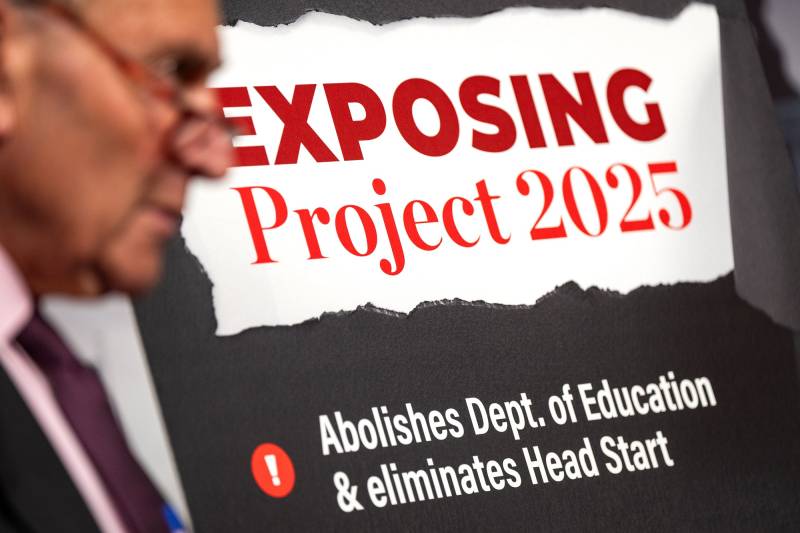North Bay Congressman Jared Huffman’s Stop Project 2025 Task Force held its first congressional hearing on Tuesday focused on exposing the nearly one thousand-page conservative playbook many see as a sweeping MAGA manifesto.
For two hours on Capitol Hill, Congressman Huffman joined the Democratic Steering and Policy Committee in a multimedia presentation and testimony that directly targeted the blueprint fueled by former Trump administration officials and led by the Heritage Foundation, a prominent conservative think tank.
Huffman called the plan for the next Republican president breathtakingly extreme, noting that the final of its four “pillars” — the “Playbook” — is left conspicuously secret, only to be revealed upon the “President’s utterance of ‘So help me God.’”


